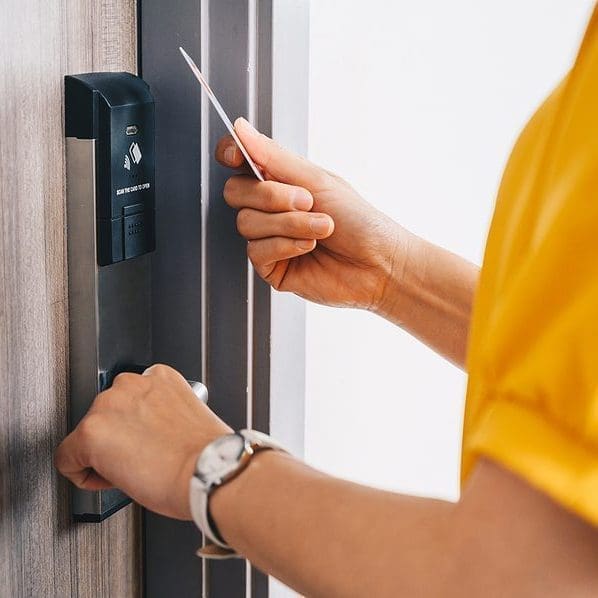Have you ever asked yourself what would happen if we all accepted the risks in this world and treated them as a given, instead of constantly trying to find proof that these risks actually exist? This new mindset would transform uncertainty into reality and the new circumstances would become certain. With this new mindset we would actually start making progress and it would give us a new perspective to fight crime from a safe distance. For example, cyber crime and terrorism are phenomena that can’t be ignored because they are real, even if they not happening directly in our own backyard.
The media, politicians and security experts proclaim “today we are living in an uncertain world”. But what exactly is uncertain today? How much of what is termed as uncertain is actually true?
Is it uncertain that the next serious crime is going to happen, or is it uncertain where and when it will occur and who will perpetrate it? For example, ‘uncertain’ really means we don’t know what someone is planning to do or how they will do it. If they are going to use an improvised explosive device (IED), what are they going to use to transport it and where are they planning to set it off?
Look at the official definitions. Authorities clearly distinguish between Concrete Danger/Genuine Danger when something is likely to happen (=certain) and Abstract Danger (=uncertain) when a potential risk is invisible, but present.
Not again – another hotel in the firing line
In security we talk about the crime iceberg theory. This is because there is only a small percentage of crime that we can actually see coming. Like an iceberg, most of it is hidden under the surface, and we don’t get to see it until it is too late. This makes the danger, abstract – uncertain.
For example, the attack by an Islamic extremist in Sousse, Tunisia that killed 38 people last month is not the first time a hotel has experienced an act of terrorism. In this instance, a gunman wielding a machine gun entered the hotel property from the beach and randomly shot hotel guests. Guests who were on holiday relaxing under the blue sky and who survived the massacre that day reported, “He came literally out of the blue”. Others who heard the shots from their bedroom balconies barricaded themselves in their rooms by dragging the mattresses against the doors. This was a smart move in my opinion.
People react to terror in different ways. Some are strong enough to remain calm and it seems they always know exactly what to do. Others panic, scream in fear and run away. I don’t blame them. Let’s remember that a goal of terrorism is to generate fear.
Playing with fire
A hotel staff member managed to record the assassin on video with his mobile phone during the attack. More than once he tried to get as close as possible to the shooter to get the best ‘shot’. The footage clearly shows the danger he put himself in. What was he thinking? He had the chance to get out of the firing line and get to safety, but he chose to record as much of the attack as he could. Unfortunately, others could not escape and died in the attack.
When I saw this shocking video posted on YouTube by Sky News it reminded me of a German nursery rhyme: “Messer, Gabel, Schere, Licht sind fuer kleine Kinder nichts!” This simple nursery rhyme means, ‘mark knives, forks, scissors and fire as dangerous items for children.’ Parents, childcare workers and teachers use this nursery rhyme in that part of the world to teach children in the early stages of life about dangerous items. Figuratively speaking, this nursery rhyme is a very good example of one of our first important lessons in life: Respect the danger and don’t play with it, because it is not worth it.
Stop trying to play the hero will increase your chances of survival in terrorism incidents like the one in Tunisia. If you can escape the situation, do it. The hotel employee in Tunisia chose not to run for his life, for whatever reason, and tried to follow the shooter. Was it an adrenalin kick that made him behave like this? Was he not aware that he was putting himself in a life threatening situation? Or did he feel it was his duty as a good citizen to put his life at risk?
Training all staff in security awareness is more important today than ever before
Security awareness means you see or hear something that does not feel right and you take action to prevent harm to yourself, colleagues, guests and facilities. Once trained in the See, Hear, Feel and Tell Approach to security awareness, hotel staffers are encouraged to trust their gut feelings when facing an urgent situation. By nurturing their instinctive feelings and teaching people to open their ears and eyes to hazards and suspicious behaviour, hotels will be armed with a powerful protective shield that criminals will start to fear.
Countries like Tunisia are not experiencing terrorist attacks involving tourists for the first time. Crimes of terror are a certainty and reality now in many parts of the world. It is the detail of the attacks that are uncertain. This is why it is important to train our eyes to look out for suspicious behaviour and items, and to be skilled in differentiating between right (safe) and wrong (unsafe) behaviour.
About the author
Stefan Vito Hiller is the Founder & Managing Director of Sky Touch – Global Hotel Security Consulting. He has over 20 years international experience in the hotel industry, including five years specifically in security.
His hotel experience includes rooms division management, pre-opening, fire, health & safety, risk management & cost control. He has worked for leading hotel brands in Munich, Frankfurt, Bremen, Berlin, Cork, Edinburgh and Doha in the Middle East.
He graduated in 2002 as a Hotel Management Consultant at the Steigenberger Hotel Management School. He gained valuable experience as a Cost Controller at the Sheraton Hotel & Towers at Frankfurt Airport. He worked three years in Ireland where he built on his experience as a former volunteer fire officer and became a qualified IOSH Health & Safety Officer. He effectively combined the field of Health & Safety with his Assistant Manager positions.
Stefan now consults to hotels to implement innovative and affordable strategies to raise their level of security to meet growing global demands.






























